Psychiatrist Promotes Medical and Mental Health on Tanzania RCP Program
Dr. Hannah Nguyen returned from Tanzania driven to inspire colleagues to contribute their skills to rural villagers through Global Volunteers’ Reaching Children’s Potential (RCP) Program. Some of the following is excerpted from her story in the professional newsletter of the Southern California Child Adolescent Psychiatry Association. Read on to learn how you can advance the physical and mental health services offered to families on a “volunteer vacation” in Tanzania.
By Han (Hannah) Nguyen, MD, PGY2
Childhood stunting is estimated to affect around 22% of children under the age of 5 years old worldwide. Stunting is defined as low height for age, two standard deviations below the World Health Organization Child Growth Standards mean. Causes of such poor growth can include poor nutrition, poor psycho-social stimulation, and repeated infection. Globally, stunted growth is often associated with poor educational performance, increased risk of chronic diseases, long-term effects at the societal level, and mental health consequences. A prospective cohort study followed stunted children from poor neighborhoods in Kingston, Jamaica, and conducted follow-up surveys at 17-18 years old. The results demonstrated children who were stunted during infancy reported more anxiety, symptoms of depression, and lower self-esteem at 17-18 years old than those who were not stunted. Additionally, the study found that parents of stunted children tended to report more oppositional behaviors than parents of non stunted children. Many organizations, including the United Nations International Children’s Emergency Fund (UNICEF), focus on nutritional intervention during the first 1000 days of life, a critical stage of neural, cognitive, and social development, to reduce the risk of stunting. One example of poor nutrition that has been shown to be particularly critical in neuro-development is iron deficiency. Iron deficiency during the first 1,000 days of life has been associated with poor cognition, poor behaviors, and lower intelligence.
In February 2023, I volunteered in Ipalamwa, Tanzania, a small rural village with one of the worst rates of stunting in the country. The organization launched a program called “Reaching Children’s Potential.” This program focuses on the first 1,000 days of a child’s life to reduce stunting via a multifaceted plan of attack, including providing nutritious meals, conducting parent workshops, making regular home visits to provide stimulation and support for the infants, providing primary health care, and more. An internal study demonstrated a significant reduction (up to 57%) in stunting from the years 2017 – 2021 since the program’s inception.
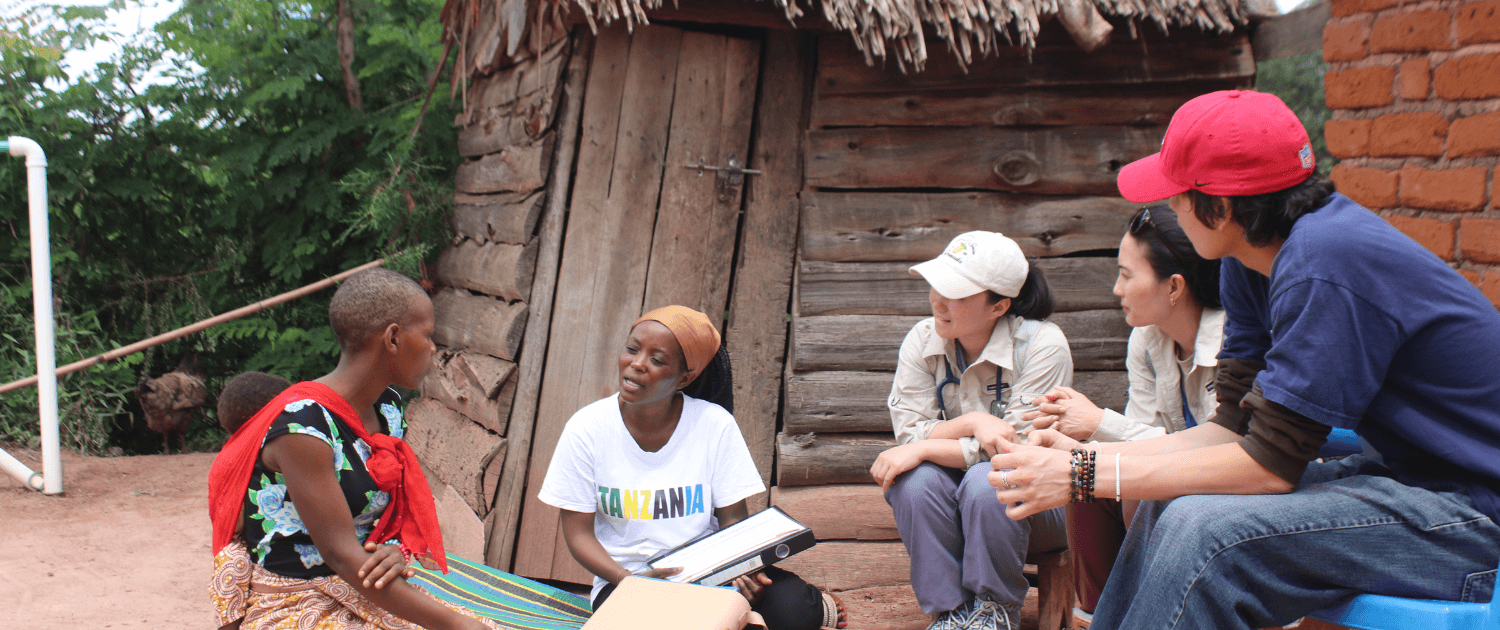
Global Volunteers is also advancing a mental health campaign in the Ukwega ward. They are tasked with providing mental health services to under-served, rural communities. They are training their caretakers (the staff that conducts regular home visits) on some basics of recognizing mental health problems. Additionally, the caretakers are provided a binder of printed educational slides on quick facts about depression, anxiety, and how to seek help. There was a focus on alcohol abuse, as I learned it plagued many families and was even commonly abused by children. 19.8% of young students reported ever drinking alcohol, according to a study from Dodoma, the recently appointed capital of Tanzania, approximately 320 km or 200 miles from Ipalamwa. Local families educated me on ways alcohol was made with readily available bamboo shoots called ulanzui or local beer. Locals simply cut young bamboo shoots, wait for the sap to collect, and allow for fermentation for 12 hours for an easy, cheap source of alcohol. Other sources of alcohol were produced from various crops that were all readily available, including cashew seeds and coconut leaves.
I was first inspired to volunteer travel back while in college when I realized the potential significant impact we can have abroad. I had created a club on campus to coordinate trips and lead a trip to Peru to set up mobile clinics. I always found it fascinating to immerse myself in a new country and learn the language, culture, customs, and values of others while being able to help those who are less fortunate than me. I wanted to bring my knowledge of psychiatry and mental health and see how I could be most helpful. I was not surprised to see people needing mental health care, but I was shocked to see people so open to learning how to integrate mental health into their lives. I wanted to offer as much as I could in this trip and I reached out to Global Volunteers. I was encouraged when executives from the organization took time to brainstorm with me on how I could use my skills to help. I was able to find significant fulfillment when I realized that I could use what I knew to help the communities we were visiting.
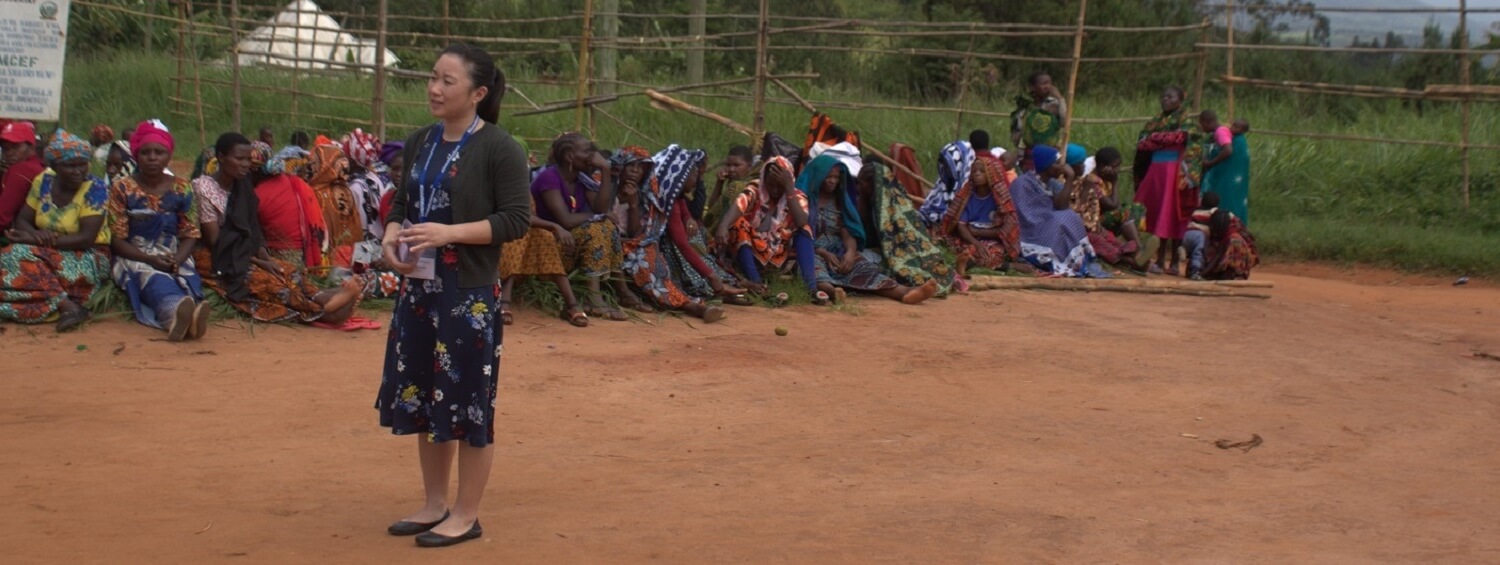
I was privileged with an invitation to speak at the community level in a village called Mkalanga on the topic of mental health. Global Volunteers cleverly paired the day of the community meeting with dispensing meals and taking their routine baby weights, thereby increasing participation in both events. It was a great utilization of partnership and leveraging the space to provide education to this particular village. This particular community suffered two suicide attempts (one completed) within the last year, so mental health was of great interest. I was asked to address the topics of depression, suicide, the effects of alcohol use during pregnancy or childhood, and the importance of supportive parents on the overall development and wellness of the child.
I was able to learn much about this remote Tanzanian village, but by far, the most memorable aspects were meeting local people while volunteering. I met a 16-year-old female who was caring for an 18-month-old infant. For anonymity, I’ll call her Naima. They lived in a modest home made of cow dung and dirt walls. Daily meals consisted of farmed avocado and bananas. The main source of protein was eggs from the freely roaming chickens that also joined our interview. Naima moved to this village hundreds of miles away from her own family to live with her husband. The baby had some kind of eye infection that required referral from the local primary doctor to the next higher level of care in town. The problem was that Naima could not afford the 4-hour travel to see a provider. In addition, her husband suffered long-term complications from Typhoid fever within the last year and could not return to farming. This was taking a huge toll on Naima financially, physically, and mentally. She spoke in a soft voice, making very little eye contact with mostly constricted effect and downcast gaze. We had a long discussion about her future goals of wanting to start a business selling dresses, putting her own mental and physical health first, and encouraging her to participate in therapy or even visit the clinic.
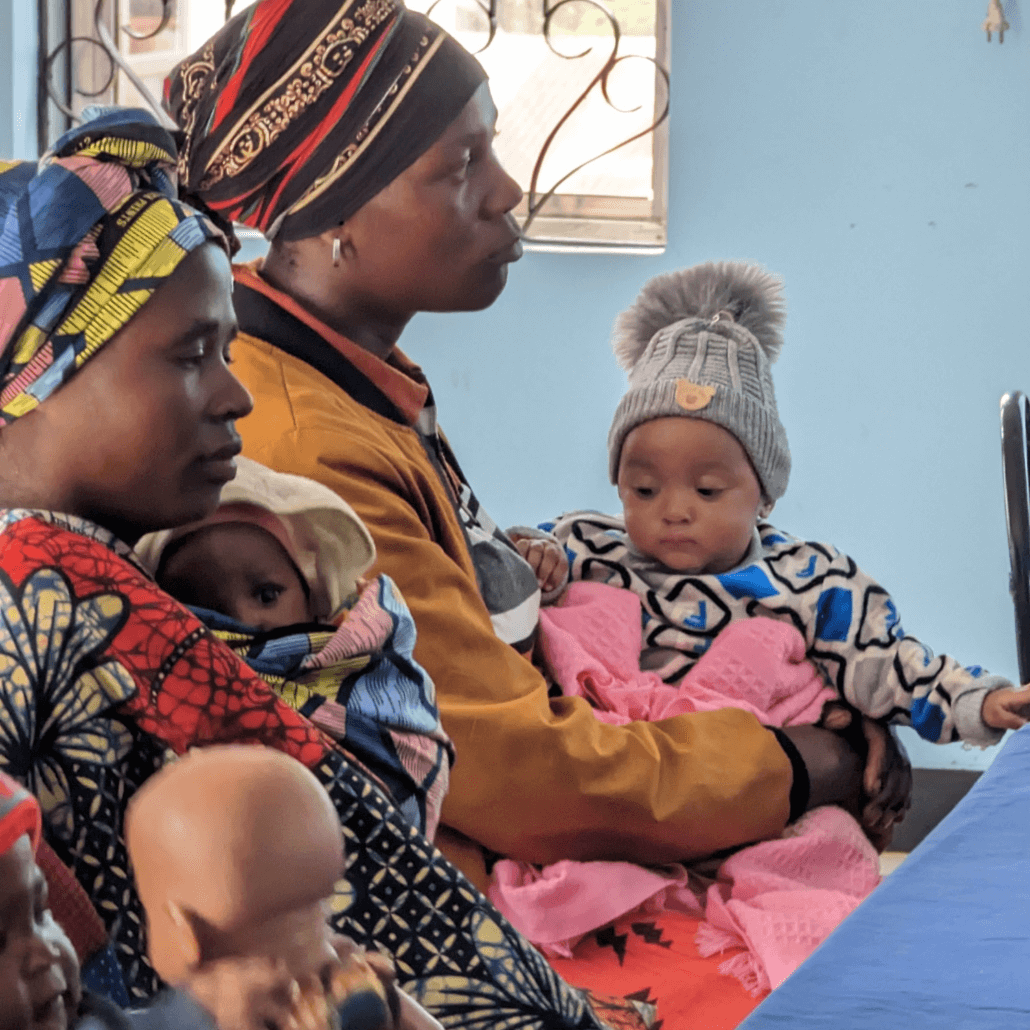
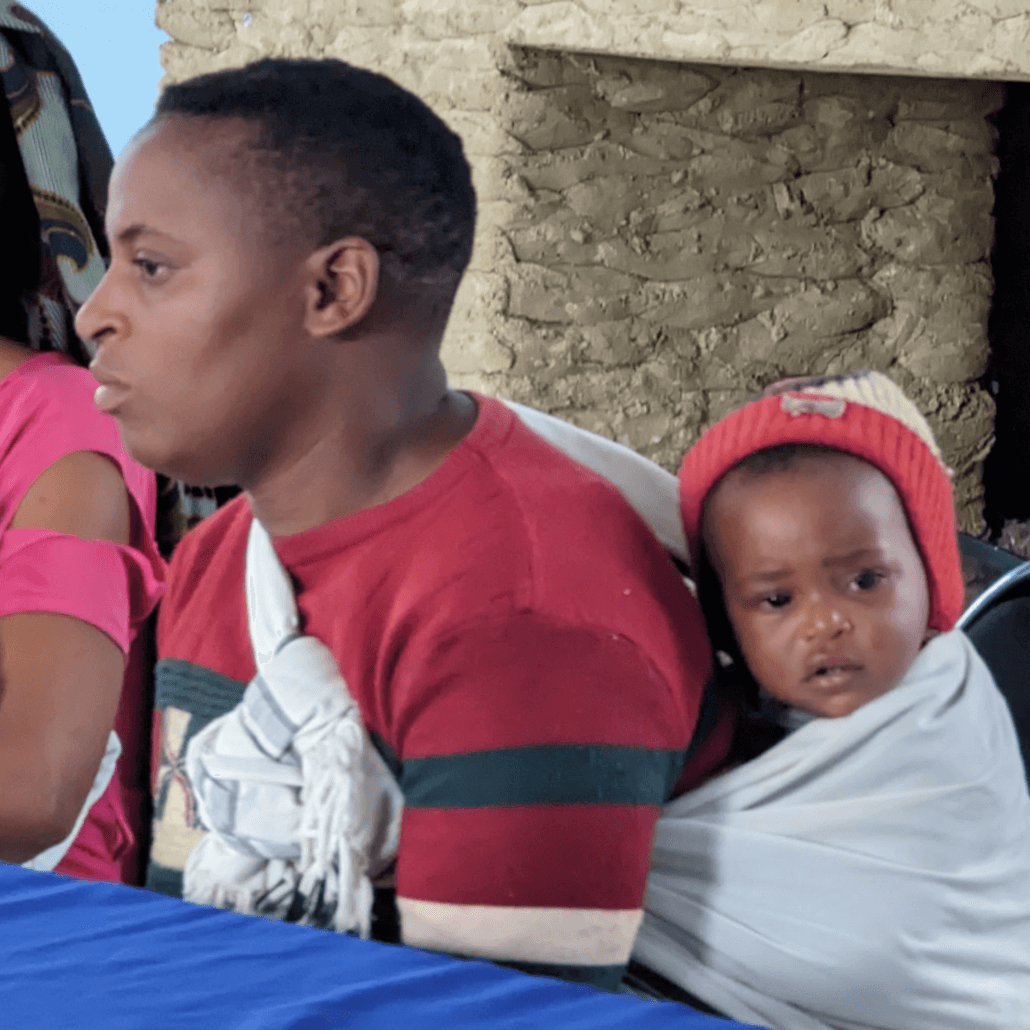
Another very memorable story for me was a 3-year-old stunted child whose family was plagued by what seemed like never-ending trauma stemming from alcohol abuse and domestic violence from dad. I’ll call the child Merius. Merius’ mother died just three months ago from malaria complications. Since the mother’s death, his father disappeared into town, and the child is now cared for by his grandmother. Merius now lives with five other cousins, who are all small children. The oldest cousin, six years old, is unable to attend school because he helps care for the smaller children while the adults tend to the daily labors of farm work. Merius has visible folliculitis on his head and an audible wheezing cough. We were informed that he was not meeting milestones. He was throwing frequent tantrums, unlike the other children in the home. His grandmother said Merius was throwing food and things around constantly, and she found it hard to understand why his behaviors were so different from his cousins’. Merius mostly shied away from us, hiding behind the long skirt of his grandmother or crying when we tried to engage him. His grandmother obviously cared for him, but her resources were already running so thin. Reflecting on his behavioral disturbances and the stressors in his three years of being on this earth, I could not help but think that this child must be experiencing toxic stress from poor nutrition, sequential loss of both parents and his current medical conditions to now having behavioral disturbances. I kept thinking about this child’s shaky foundation and questioned his life trajectory. Could he get better nutrition and recover from his stunted growth? What kind of deficits will he have, if any? Will he develop good coping skills for life, or would he develop oppositional behaviors? Would he follow his father in the cycle of alcohol abuse and leaving the family unit?
Leaving my familiar environment and daily routine of going to work to travel to Tanzania allowed me to see life from a completely different perspective. Getting out of the “normal routine” reminds me that there is so much to learn and try to understand. There are so many opportunities to see how I can apply my skill sets and contribute to better the lives of others. I loved sitting down and talking to the local people, especially the RCP mothers. I loved listening to their daily routines and fully taking in their perspectives. I was constantly comparing my life to theirs, and found fascinating differences. For example, my daily diet in the U.S. is heavy on protein and carbohydrates I buy from the store, while the diet in many households I visited in Tanzania were heavy in vegetables and fruits that were grown right outside of their homes. Another example is comparing my easy access to things like clinics, banks, and stores, while going to the clinic (built by Global Volunteers’ RCP Program) can involve 2-4 hours of walking in the sun for residents of some of the far-flung villages.
I will never forget some of the home visits I had, and the heart wrenching stories I heard. I distinctly remember one young mother who lived at the top of a massive hill, who was dehydrated because she was nauseous from her pregnancy and could not tolerate any food or water. We instructed her to try soups or other fluids, but I still wonder if she got better. Another young mom I will vividly remember moved out of her family’s town across the country to live with her husband. Her husband’s family was not welcoming, and the husband had moved back to town, leaving her mostly alone, caring for her 2-year-old child. On top of this, she had an eye infection, followed the advice of her neighbors, and was rinsing her eyes with dirt-filled water that was soaking a root. Again, I find myself wondering if she is okay and trust that the RCP caregivers are assisting her with continued care.
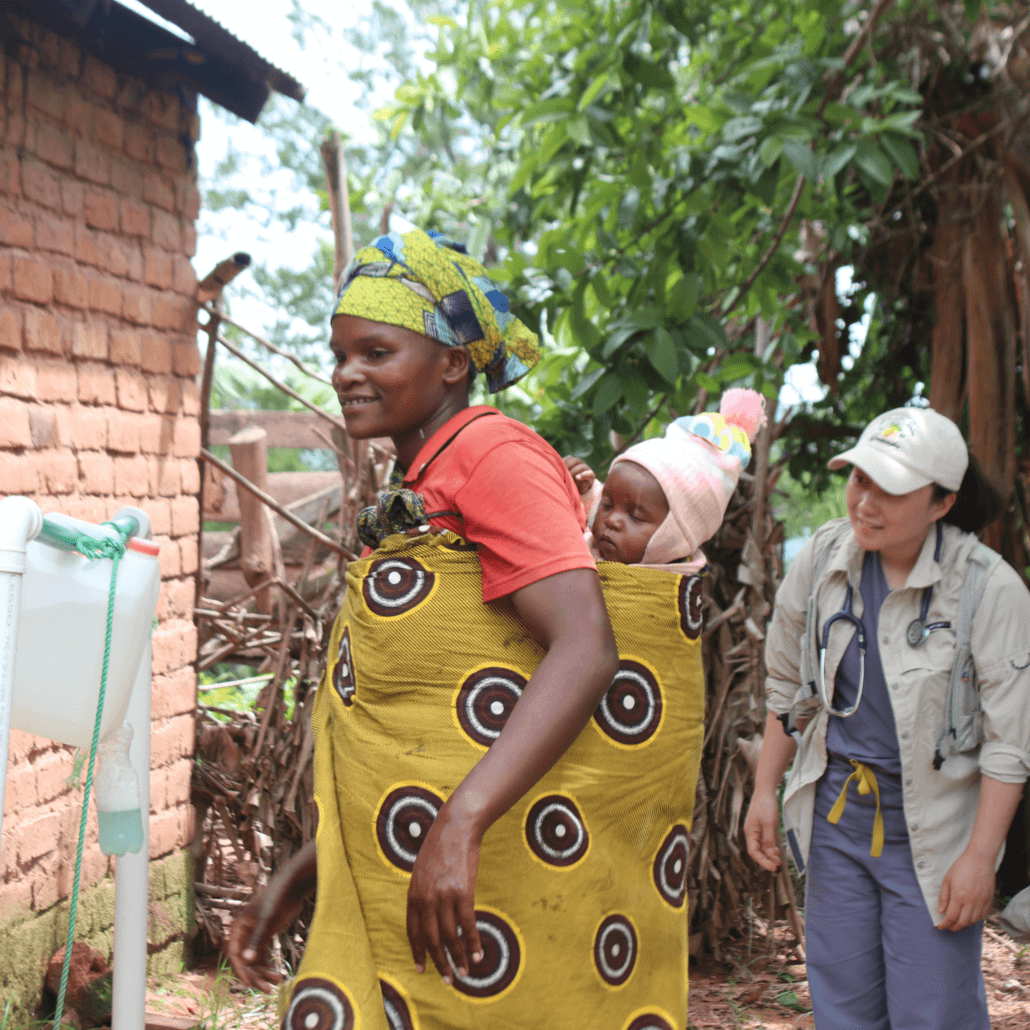
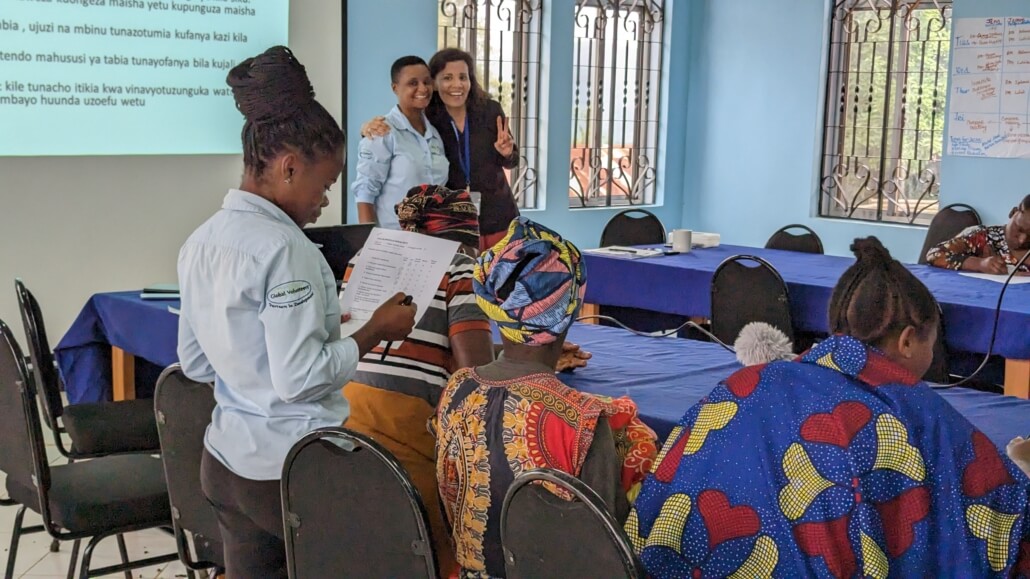
I hope there will be greater awareness and less stigma around mental health in Tanzania. I am very hopeful because everyone I met through Global Volunteers was receptive to integrating mental wellness in their daily lives. As I gave my speech on Mental Health in Mkalanga, there were several questions from the audience that reflected the interest in mental wellness. I hope we can offer resources to help train the staff about mental health and therapy techniques. I hope we can explore support groups in Tanzania especially for alcohol abuse and for domestic violence. I hope I can continue to stay actively involved in this initiative because it is what I am passionate about.
I think volunteers can have a huge impact, especially if we find our strengths and play to them. Every volunteer can contribute something different and collectively across time, we can and have already made positive change in the communities we serve. We need volunteers to ensure continuity of services in these communities, but I think the two weeks of volunteering can actually make a huge impact in our lives as volunteers. Opening our minds, expanding our perspectives, and understanding new cultures only makes us more well-informed and compassionate human beings.
I took some valuable lessons from my service. I appreciate the critical period of a child’s social and cognitive development that lays the foundation for the rest of their life. Overall, I was pleasantly surprised that mental health awareness is reaching remote African villages. It was a reminder that child adolescent mental health is not only a priority in the U.S., but its relevance is greatly appreciated abroad. There is a realization that these critical periods of development through childhood have long-lasting effects, and the work of a Child Adolescent Psychiatrist is needed here and there more than ever.

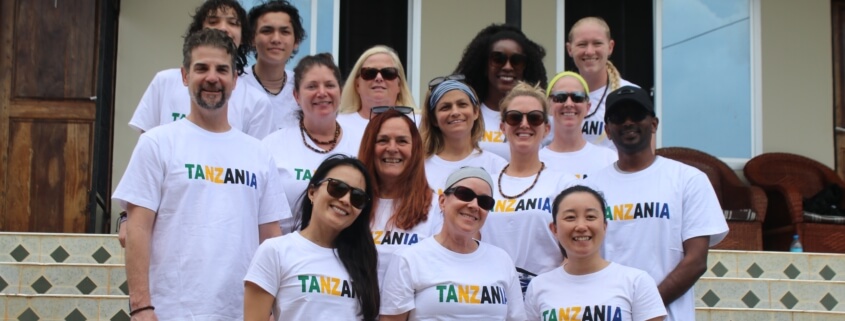


Leave a Reply
Want to join the discussion?Feel free to contribute!